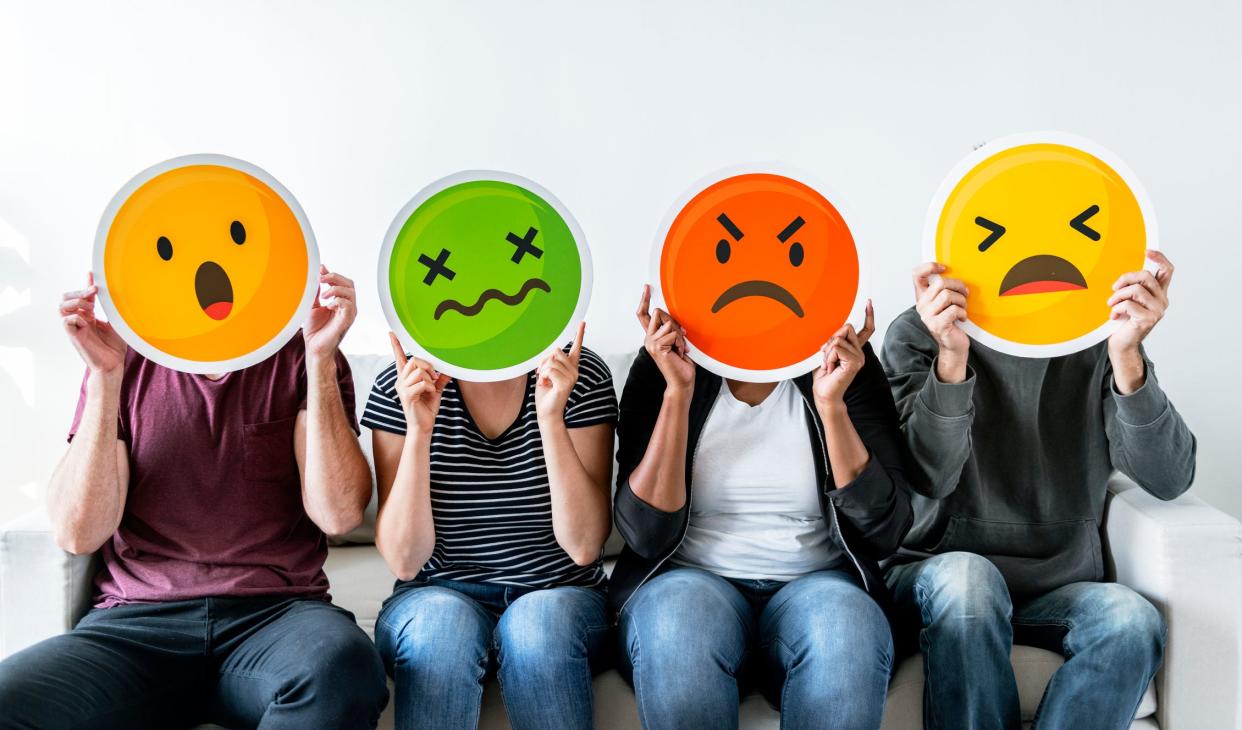So positive it's negative – how to recognize 'toxic positivity'

We hear it (and maybe use it) all the time: "Just look on the bright side!"
I'm guilty of this myself. Trying to push down negative emotions in exchange for forced positivity when things get tough.
And while it can be helpful to thinkpositively when facing challenges, this week I learned too much of this forced positivity can be toxic – thus the term "toxic positivity."
"Toxic positivity is when somebody avoids all negative thoughts or feelings, pretending everything is going well when it is not," Melissa Dowd, a therapist at PlushCare, told me.
This is something we may bring onto ourselves by not allowing negative thoughts and feelings, but it's also something we can cause other people to experience.
How can we recognize we're doing it?
It may look like offering others a simple solution for a complicated problem that we know nothing about or not allowing people around you to appropriately express negative sentiments.
It's important to break the habit because if not, experts told me there can be harmful effects, including:
Suppressing our true emotions, which can make them worse
Disrupting connection
Keeping us stuck on a macro scale when we deny issues and try to will them away with positive thinking
If you're interested in learning more, click here to read the full story.
The trauma of living a double life
This week, my colleague Jenna Ryu dove into the story of a woman who kept secrets about her abusive home for years. What she learned is living a lie only worsened her trauma. Here's an excerpt of Jenna's piece:
“I’m not your biological father."
These five words were uttered by Diana Cannon Ragsdale’s father nearly 30 years ago, but she remembers the moment like it was yesterday. She recalls in her memoir "Loose Cannons: A Memoir of Mania and Mayhem in a Mormon Family" (Legacy Launch Pad, 408 pp) seeing the man she called "dad," his face flat on the kitchen table after one too many drinks, as he slurred the sentence that would shatter life as she knew it.
Only seconds passed before another drunken revelation: Her parents, devout members of the Church of Latter-day Saints by day, were party-going swingers by night, and Ragsdale was the product of an affair.
"Nobody wants to hear this about their own parents," Ragsdale, now 64, tells USA TODAY. They were also having orgies, she discovered. "It’s tough to hear that."
But Ragsdale kept her family's secrets, not knowing doing so would eventually lead to trauma and mental health issues.
"Once I took the time to realize I was living with all these lies, it just compounded all the chaos… and I had an identity crisis."
To read the full story, click here.

Can you be in love with more than one person?
We see it all the time in movies: Someone has feelings for or even loves, more than one person. The plot revolves around them facing the difficult decision of choosing who is right for them.
But can it happen in real life? In this week's column, Millennial Therapist Sara Kuburic examines if we can love our parents, children and friends simultaneously, why couldn't we romantically love more than one person?
If you are currently trying to make a decision, she suggests considering the following:
What aspects of yourself come out with each person?
Do you want to commit to one or both of them?
Who are you compatible with?
Are you truly in love or are you infatuated?
Not sure about the difference between those last two terms? She breaks that down as well:
Infatuation (which some people define as being “in love”): Intense but a short-lived sense of attraction, passion, excitement and admiration. During this phase, we often think of the other person as perfect, turning a blind eye to flaws, incompatibilities, or red flags. We often idealize this person and have unrealistic expectations of what they are like.
Love: Love is an experience built with time, intimacy and a sense of knowing who the other person is. Love is a verb, an action, and a choice of how we show up and honor our dynamic with the other person. Love is sensible, stable and respectful.
To read the full column, click here.
Today's reads
This week's advice column: My grandma shared pictures of my baby so I blocked her. Am I petty?
Study shows meditation can reduce anxiety just as well as medication: What you need to know
Is alcohol a depressant? The effects of alcohol, binge drinking on the body
Voluntary celibacy and the sexual empowerment of saying 'no'
What is ALS, the rare disease making it 'impossible' for Roberta Flack to sing?
Is Thanksgiving as burned out as we are? Top 2022 trends include simple menus, value ingredients
Today's pet
Meet Zorra.

Thanks to Steve Scott for sharing this 2 ½-year-old Old English Sheepdog!
This article originally appeared on USA TODAY: Toxic positivity: How to recognize it and why it's harmful

